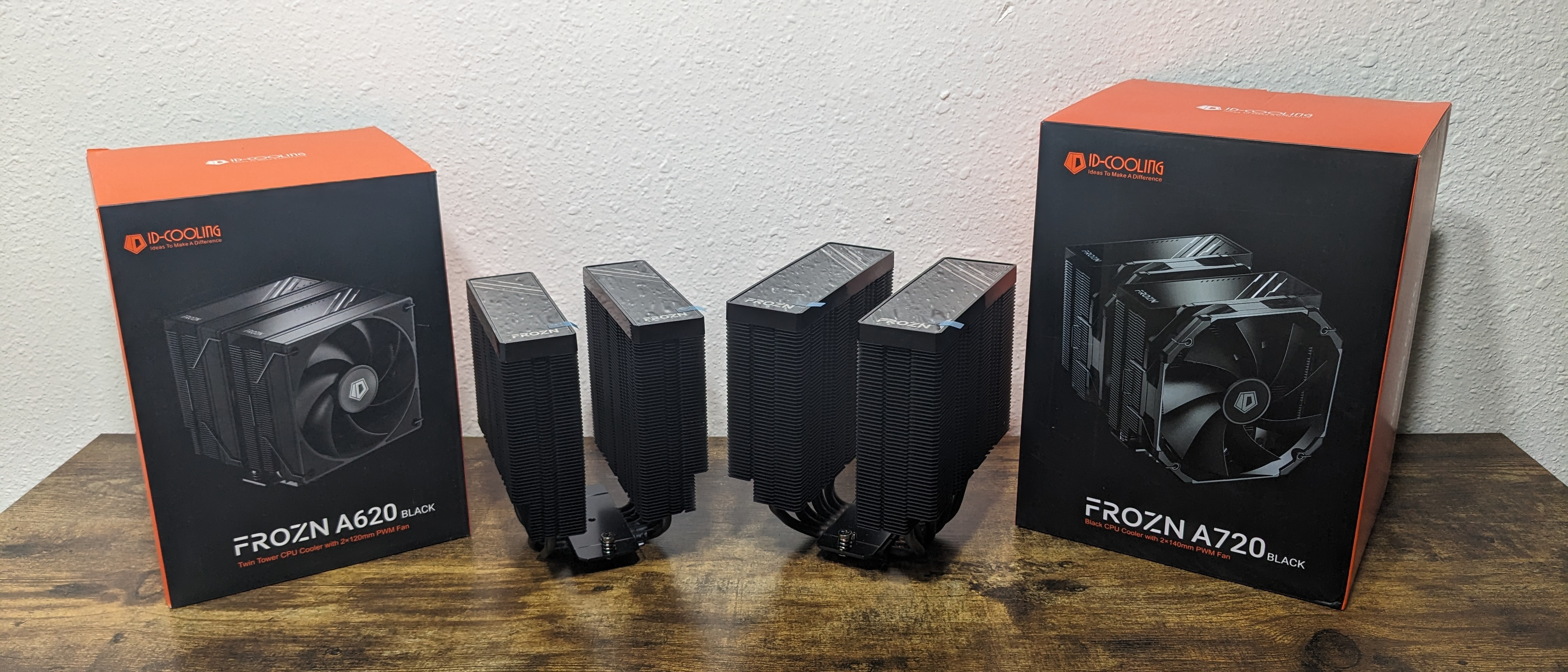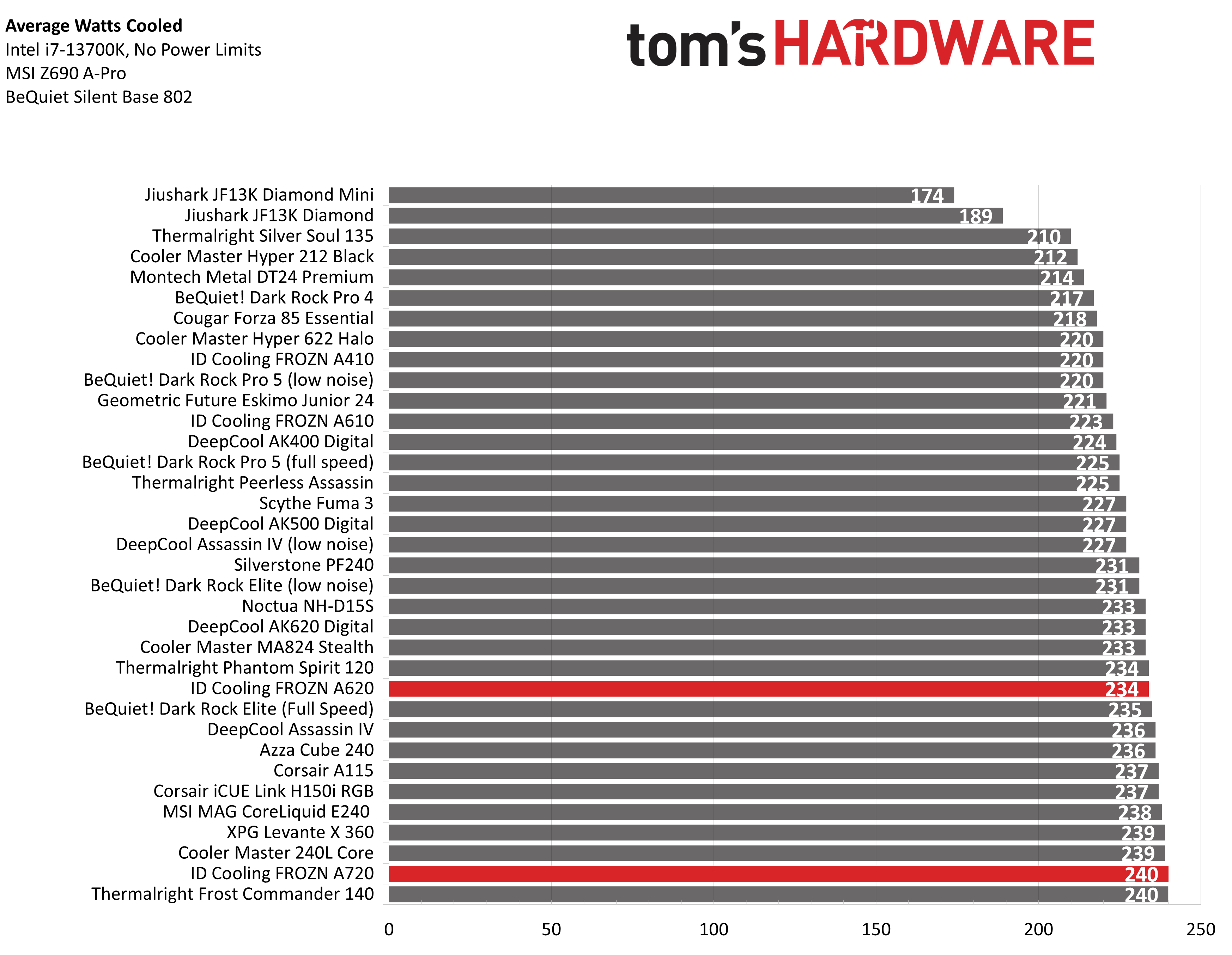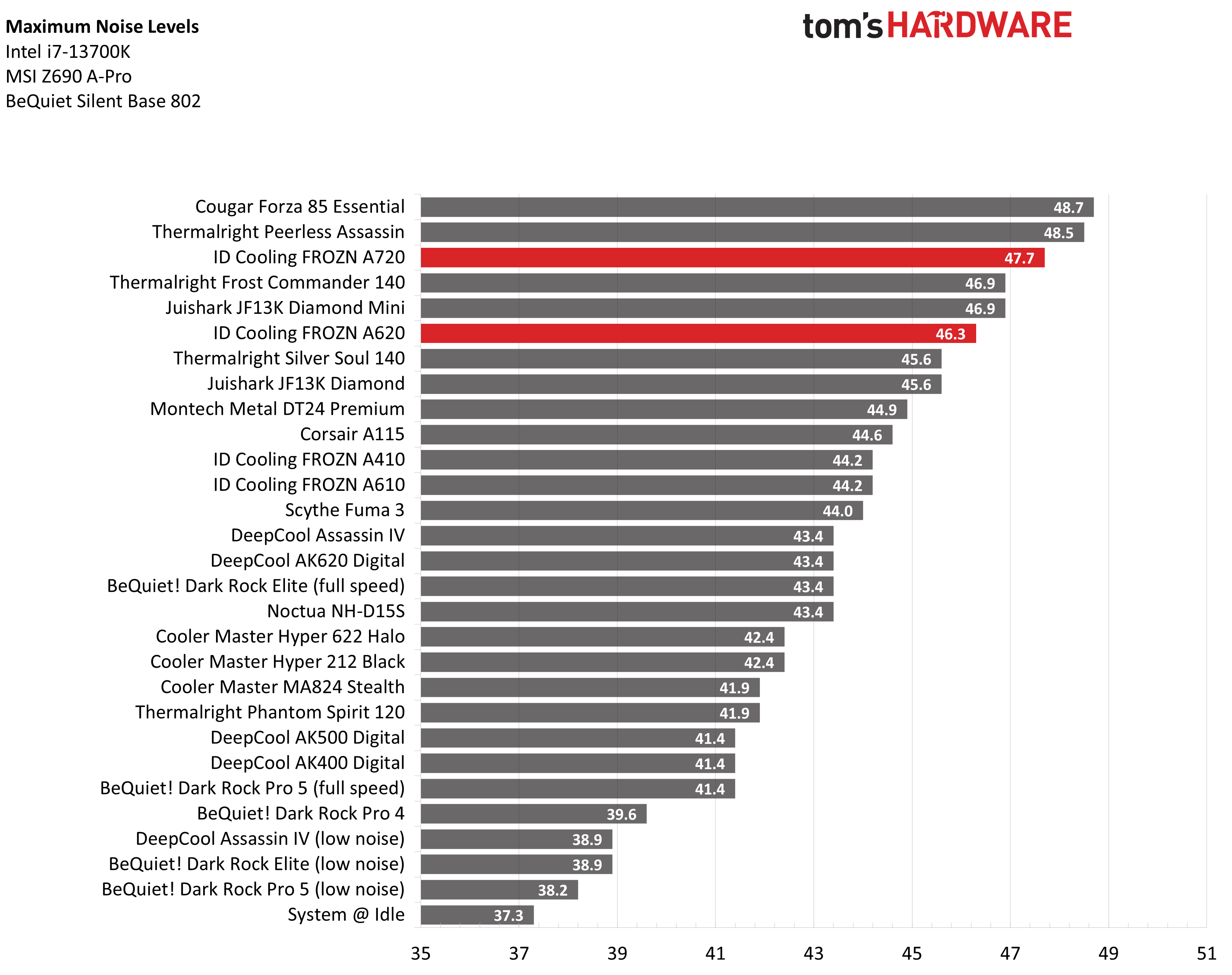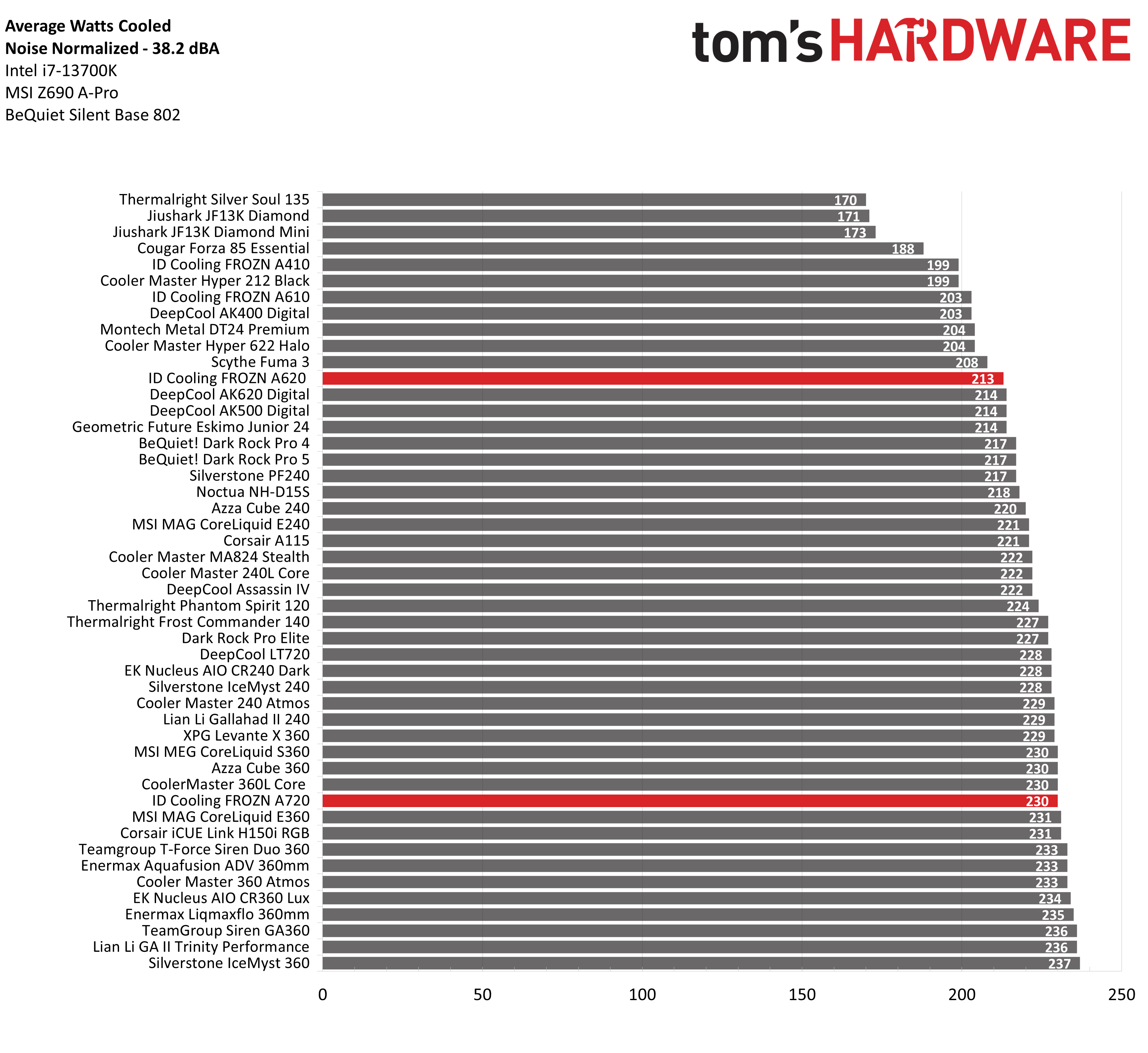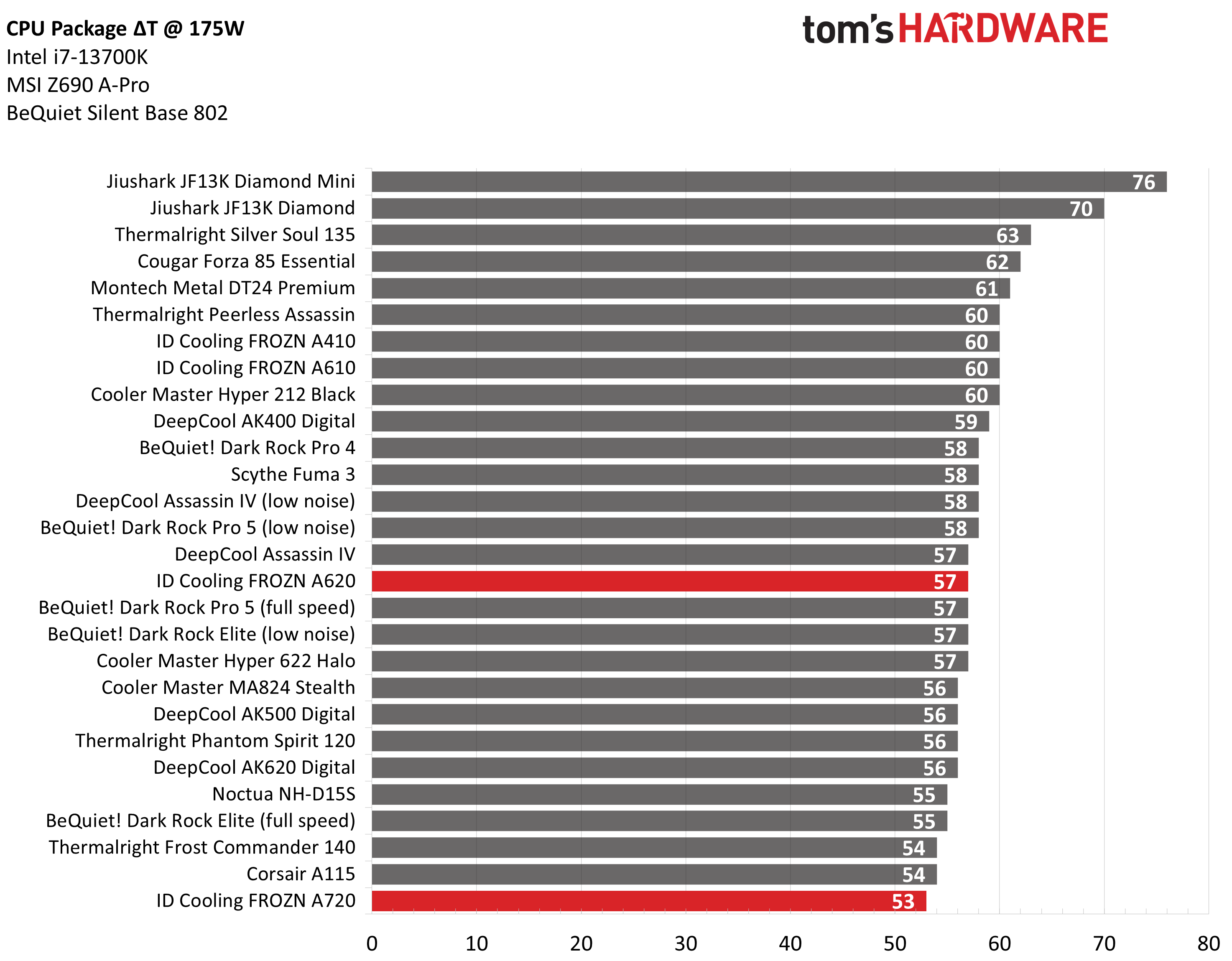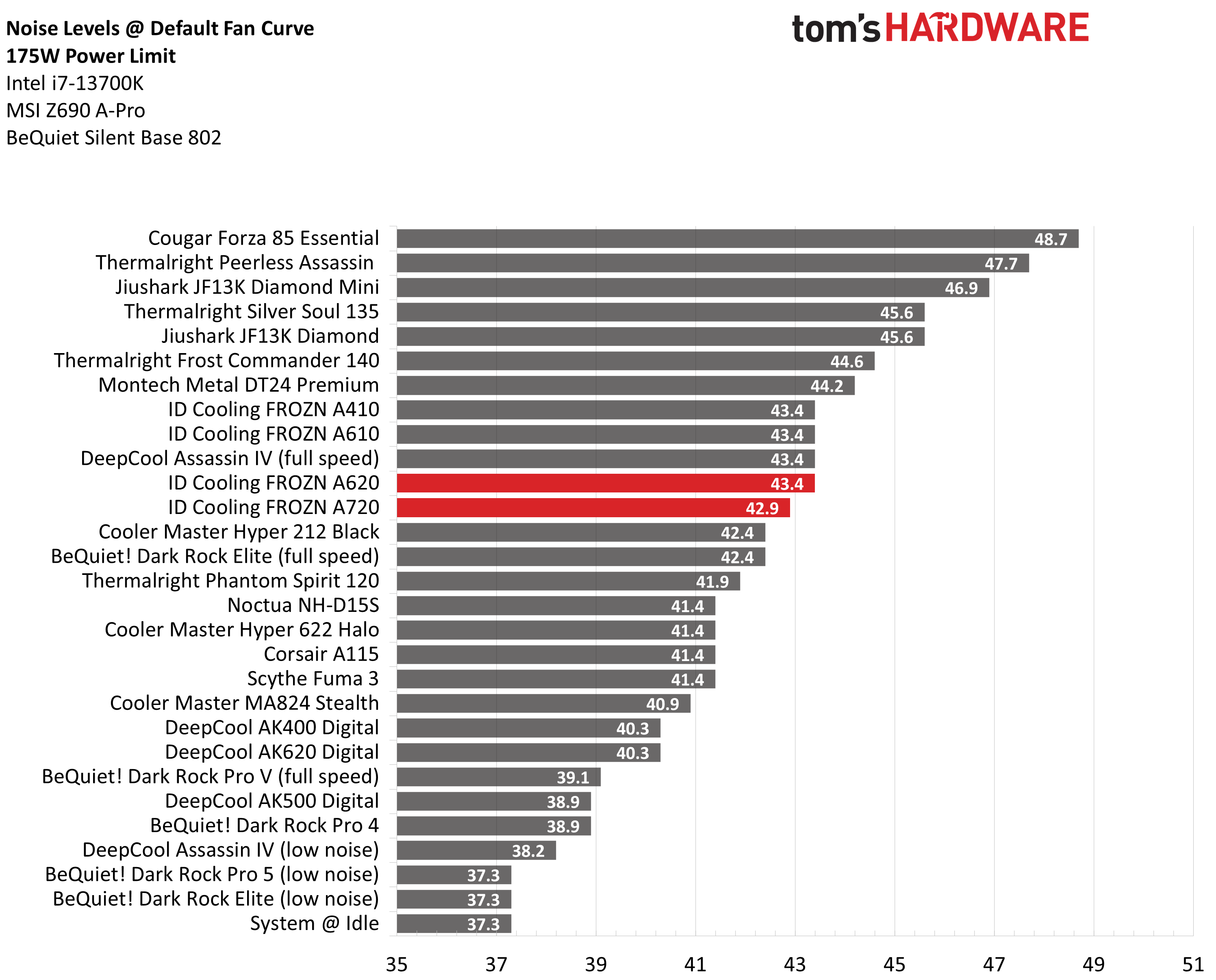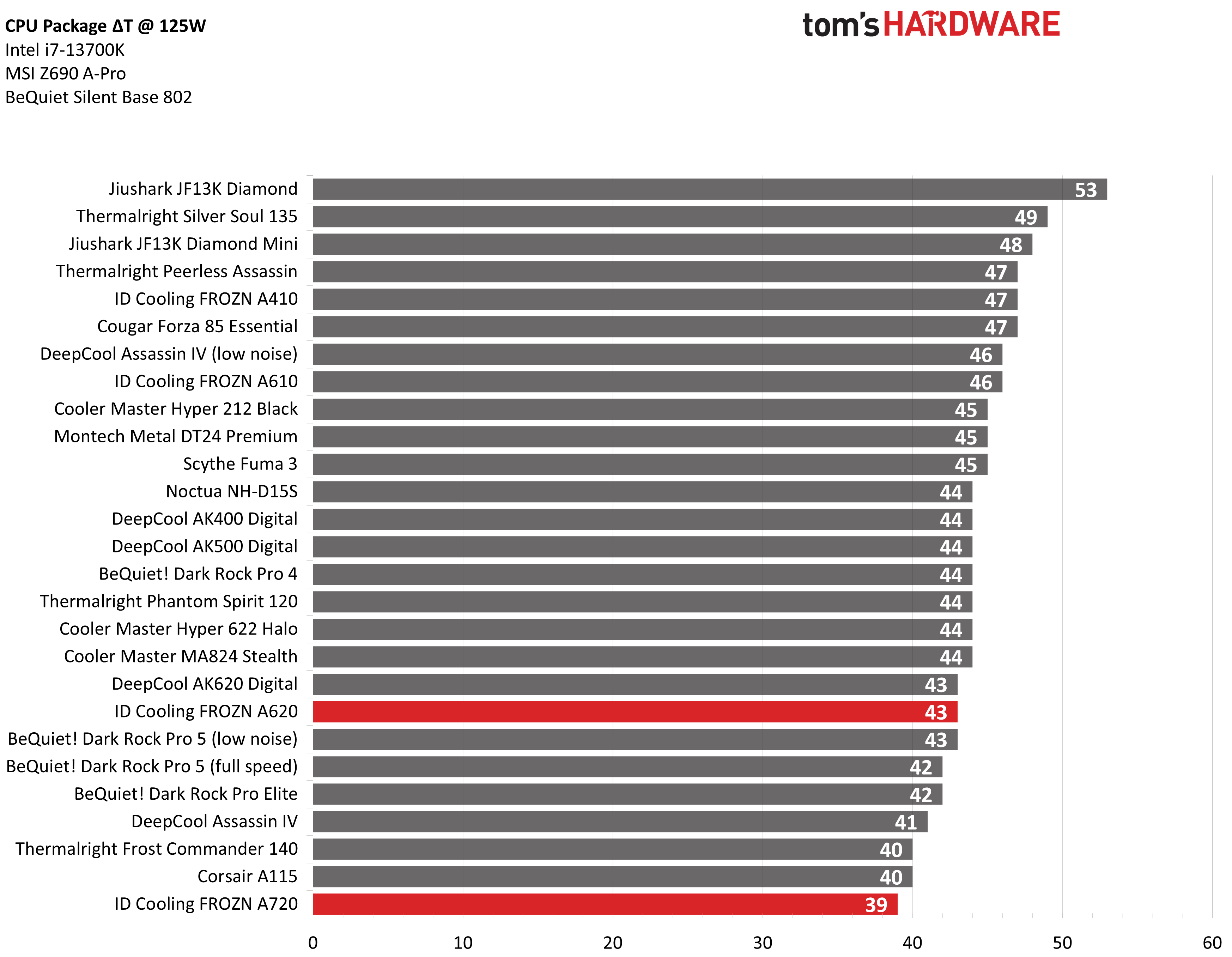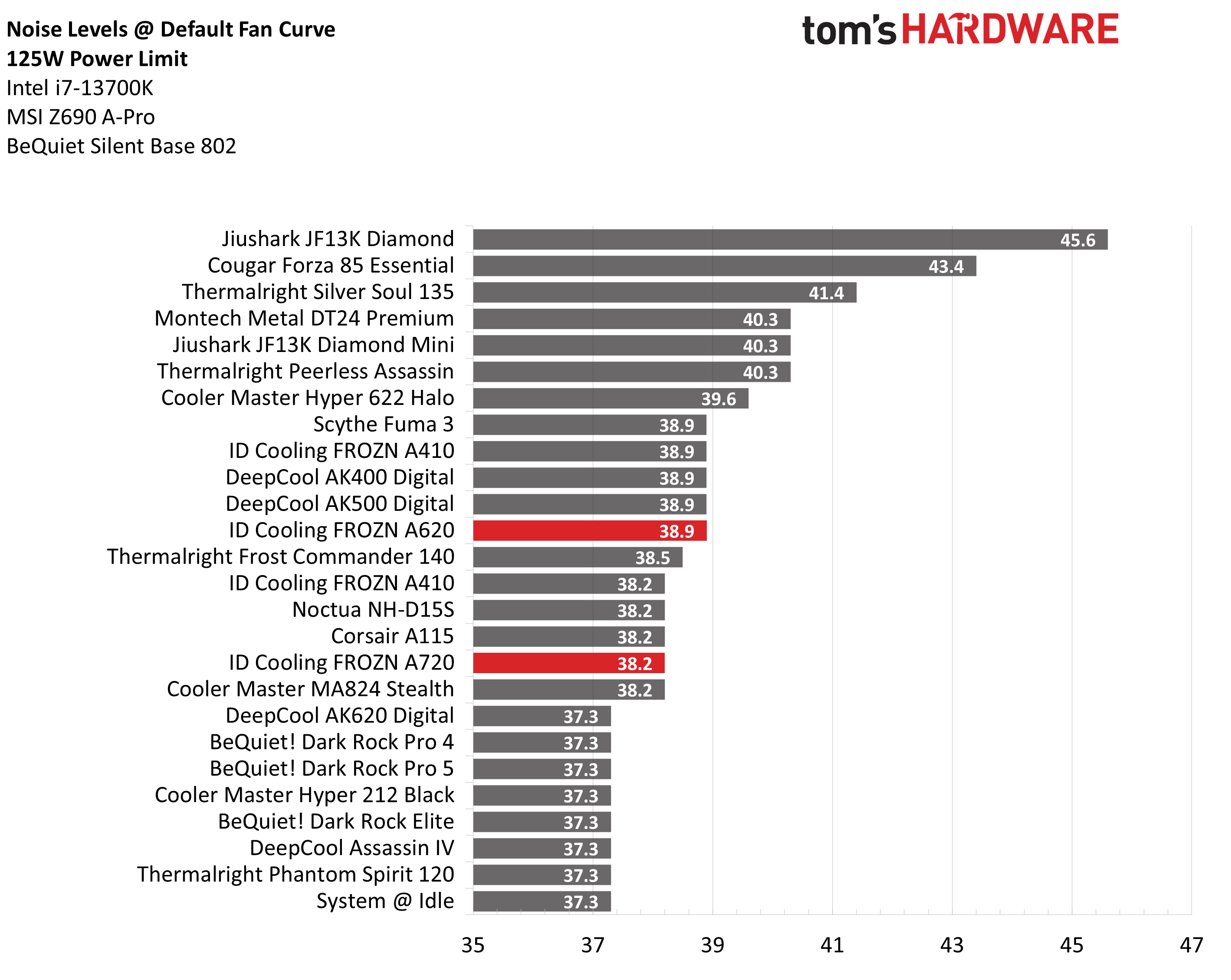Why you can trust Tom's Hardware
Without power limits enforced on Intel’s i7-13700K, the CPU will hit its peak temperature and thermally throttle with even the strongest of air coolers. When the CPU reaches its peak temperature, I’ve measured the CPU package power to determine the maximum wattage cooled to best compare their performance. The results below do not include the best liquid coolers on the market, which are able to keep the CPU under TJ Max (100C).
ID-Cooling’s A720 provided chart-dominating performance, cooling 240W on average during testing. This level of cooling allows the CPU to run unthrottled in Cinebench, and is only matched by one other air cooler I’ve tested – Thermalright’s Frost Commander 140. The A620 model performs about as expected, pulling a tiny bit ahead of DeepCool’s similarly named AK620.
The A720 runs at up to 47.7 dBA at full speed, a bit louder than Thermalright’s competition, and is one of the loudest air coolers we’ve tested yet. The A620 runs slightly quieter at 46.3 dBA, but that’s still 3 dBA louder than its namesake competitor from DeepCool.
Thermal results with noise normalized to 38.2 dBA
Finding the right balance between fan noise levels and cooling performance is important. While running fans at full speed can improve cooling capacity to some extent, the benefits are limited and many users prefer a quiet system. With this noise-normalized test, I’ve set noise levels to 38.2 dba. This level of noise is a low volume level, but slightly audible to most people.
The noise-normalized results from ID Cooling’s A720 air cooler are incredibly impressive. With an average of 230W cooled, despite having the fans set to a low noise level, its cooling performance was equal to many 360mm AIO liquid coolers on the market, and it outperformed Thermalright’s Frost Commander 140 by a few watts.
The A620’s results here were about as expected, essentially on par with, but technically just a bit behind DeepCool’s AK620.
175W Cinebench results
Most coolers on the market can keep Intel’s i7-13700K under its peak temperature if the power consumption is limited, so for this test, we’ll be looking at the CPU’s actual temperature.
As with our previous noise-normalized results, ID-Cooling’s A720 delivers chart-topping performance, narrowly outperforming Corsair’s A115 and Thermalright’s Frost Commander 140. The A620 reached an average temperature of 80C, which is similar to other air coolers of its class.
Get Tom's Hardware's best news and in-depth reviews, straight to your inbox.
Noise levels for these coolers were moderate, with 42.9 dBA recorded on the A720 and 43.4 dBA for the A620. The A720’s results here are appreciably quieter than its competitor from Thermalright, which measured a slightly louder 44.2 dBA.
The A620’s results were a bit louder than I had expected, with DeepCool’s competition running 3dBA quieter.
125W Cinebench results
The lowest power limit I test with Raptor Lake CPUs is 125W. This is a high enough limit to allow the CPU to maintain its base clock speeds, even in the most intensive tests. And most coolers should be capable of keeping the CPU below TJ Max (the max temperature before throttling) within these constraints – even low-end coolers.
Really, thermals do not matter in this scenario. Even Intel’s stock cooler can handle a load like this with ease. Noise levels, rather than CPU temperature, are the most important factor here. That being said, the A720 once again dominated our thermal performance with the best result of any air cooler we’ve seen, outperforming both Corsair’s A115 and Thermalright’s Frost Commander 140 by a single degree. The A620 results are more or less as expected, on par with DeepCool’s AK620.
These coolers achieve this level of performance while running at 38.2 dBA for the A770 model and 38.9 dBA for the A620 model when tied to the default fan curve of my MSI Z690 A Pro motherboard. This is similar to their competition.
Conclusion
ID-Cooling’s A720 air cooler provides chart-topping performance and is one of the best air coolers on the market. This is one of the few air coolers capable of handing the i7-13700K in most situations without throttling. It does run a little loud by default, but our noise-normalized results show that even when set to run quietly it performs extremely well. If you’re looking for “the best” air cooler on the market, you should give it consideration against Corsair’s A115 or Thermalright’s Frost Commander 140. Note that Corsair’s cooler is more expensive, at $99, while Thermalright’s is cheaper, at $36-$42.
The smaller A620 model performs well for a dual-tower air cooler, but doesn’t really stand out from the crowd. It does have the benefit of a lower price, but you’re generally better off considering Thermalright’s Phantom Spirit 120 instead.

Albert Thomas is a contributor for Tom’s Hardware, primarily covering CPU cooling reviews.
-
hotaru251 Any warranty/long term support mentioned for the cooler?Reply
(as many ppl do like knowing that type of stuff) -
thestryker Their prior air coolers are 2 year and they only have one fan type that went over that so I'd assume it is probably 2 years (I could find no warranty information for this one at all).Reply -
helper800 I am so happy that air coolers are getting so good. I hope that the best air coolers become even better than the best AIOs so we don't have to deal with their pumps dying or the risk of leaks.Reply -
Phaaze88 There needs to be more reviews with both Intel and AMD test builds. TechPowerUp and Hardware Canucks are ahead in this regard.Reply
Understandably, it would take longer to produce said content. -
helper800 Reply
I agree, you cannot assume cooling from a HSF will perform similarly on an AMD CPU even if Intel CPUs run warmer because of the various differences between them like IHS design, mounting hardware, and boosting behavior among others.Phaaze88 said:There needs to be more reviews with both Intel and AMD test builds. TechPowerUp and Hardware Canucks are ahead in this regard.
Understandably, it would take longer to produce said content. -
dim0n Hey @Admin, @tom's Hardware, , can you add AMD Ryzen results too, coz many coolers do good job on Intel LGA 1700, but bad one on AM5 LGA 1718 and opposite... And today, nobody buy Intel ;-)Reply
